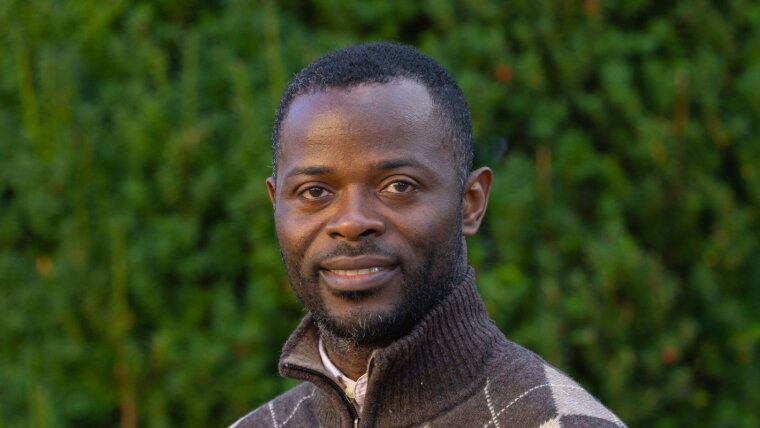
By Sebastian Hollstein
Reflections on seemingly untouched nature—albeit on a different continent—similarly feature in another research project. Original refuge from civilization, a transcendent idyll and an enchanted natural kingdom with an eerie fascination… Romanticists saw all of this in the forest, a place that encapsulated their longing. And this is also what German explorers and colonizers felt in the tropical forests of Africa. They were inspired by the unspoilt nature of the landscapes they encountered for example in the territory of present-day Cameroon. Their affinity with the ideas of Romanticism is reflected by the descriptions of nature found in their writings. Since 2018, Pascal Ongossi Assamba has been studying these aspects and various other elements to explore the connections between German Romanticism, colonialism and the national consciousness of Cameroon.
»The idea of coming to Africa and building a colonial empire was strongly influenced by the spirit of nationalism that had emerged during the Romantic era through the wars of liberation against Napoleon,« explains the researcher from Cameroon. This nationalism, which can be traced back to the writings of Romanticist masterminds such as Johann Gottlieb Fichte, drove the Germans to colonize Cameroon in 1884. »They intended to establish Cameroon in Germany’s image as a strong country in the middle of the continent. Although ›establish‹ isn’t really the right word—they invented Cameroon as the concept of a nation,« says Ongossi Assamba. »Driven by the Romantic concept of unity, they mapped out a territory, indiscriminately bundled together different ethnicities into a people, installed a government and cobbled together the construct of a national spirit through Christian missionary work«.
The sentimentality with which they shaped life in the colony was deeply connected with Romantic ideas. On the one hand, they inspired the writings of Germans in Africa, such as those composed by former governors, who praised the simplicity of life while criticizing the westernization of the so-called indigenous peoples. On the other hand, native authors present romantic descriptions in their works and mention historical facts from the era of German Romanticism, such as Jean Ikellé-Matiba in his novel »Cette Afrique-là!« (1963), which was then translated into German as »Adler und Lilie« (1966), in which the protagonist portrays his experiences in a colonial school. This work has a special place in Ongossi Assamba’s work, as it offers an insight into how the natives were taught the Romantic relationship to nature, self-consciousness, German history and the Romantic ideology, and how they perceived that ideology.
The Cameroonians’ struggle for independence from their French and British colonial masters, who had taken power after the First World War, was partly fuelled by the nationalism that had previously been established by the Germans. »Today, the Cameroonians identify more with the invented state than with the different ethnic groups to which they belong,« explains the specialist in German studies.
In addition to German colonialism, Pascal Ongossi Assamba is also investigating a completely different movement that brought Romantic thought to Cameroon. »Négritude, a literary and political movement that advocated the cultural self-assertion of the African population, was pervaded by Romantic ideas,« says the literary scholar. One of its pioneering exponents, the poet and later President of Senegal Léopold Sédar Senghor, was strongly influenced by Leo Frobenius. The German ethnologist identified striking similarities between the Germans and sub-Saharan Africans in their rather sentimental view of the world. He saw their close connection to forests as an indication of this.